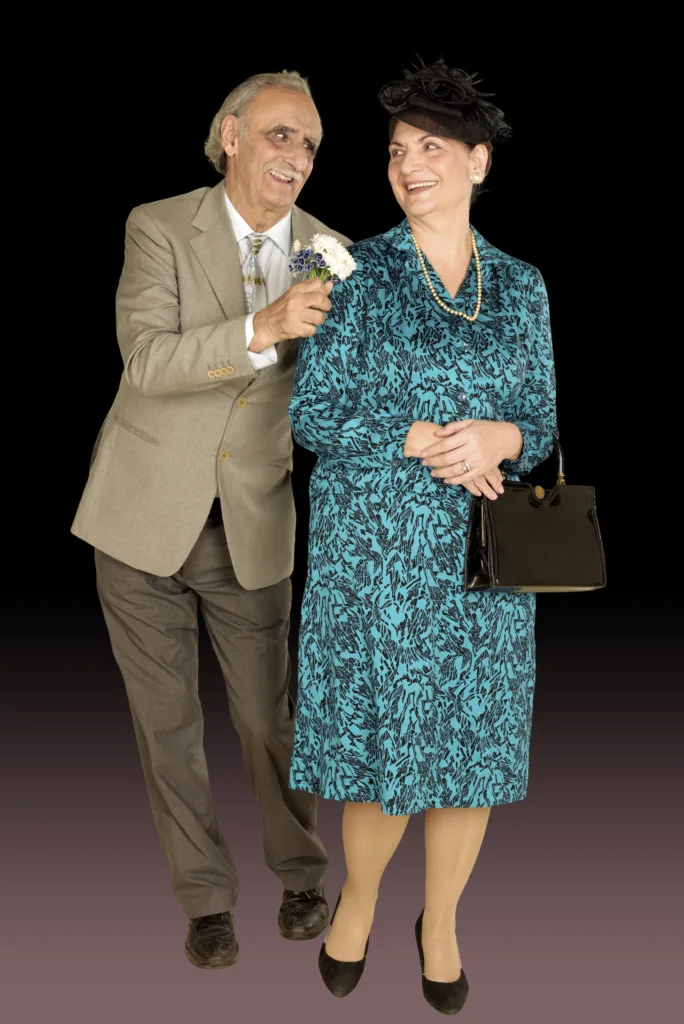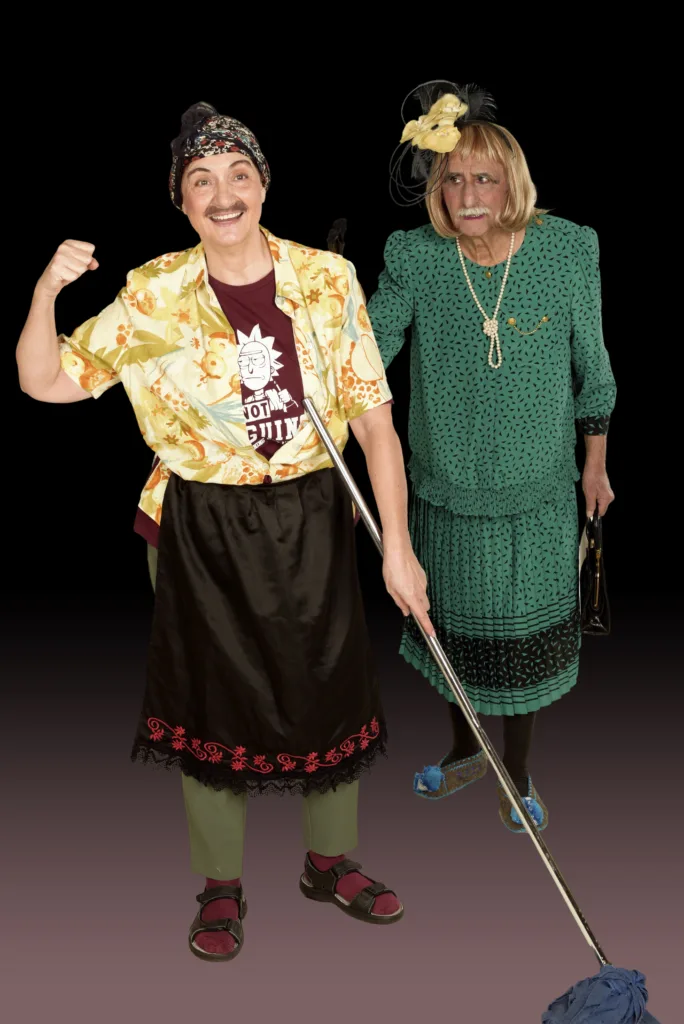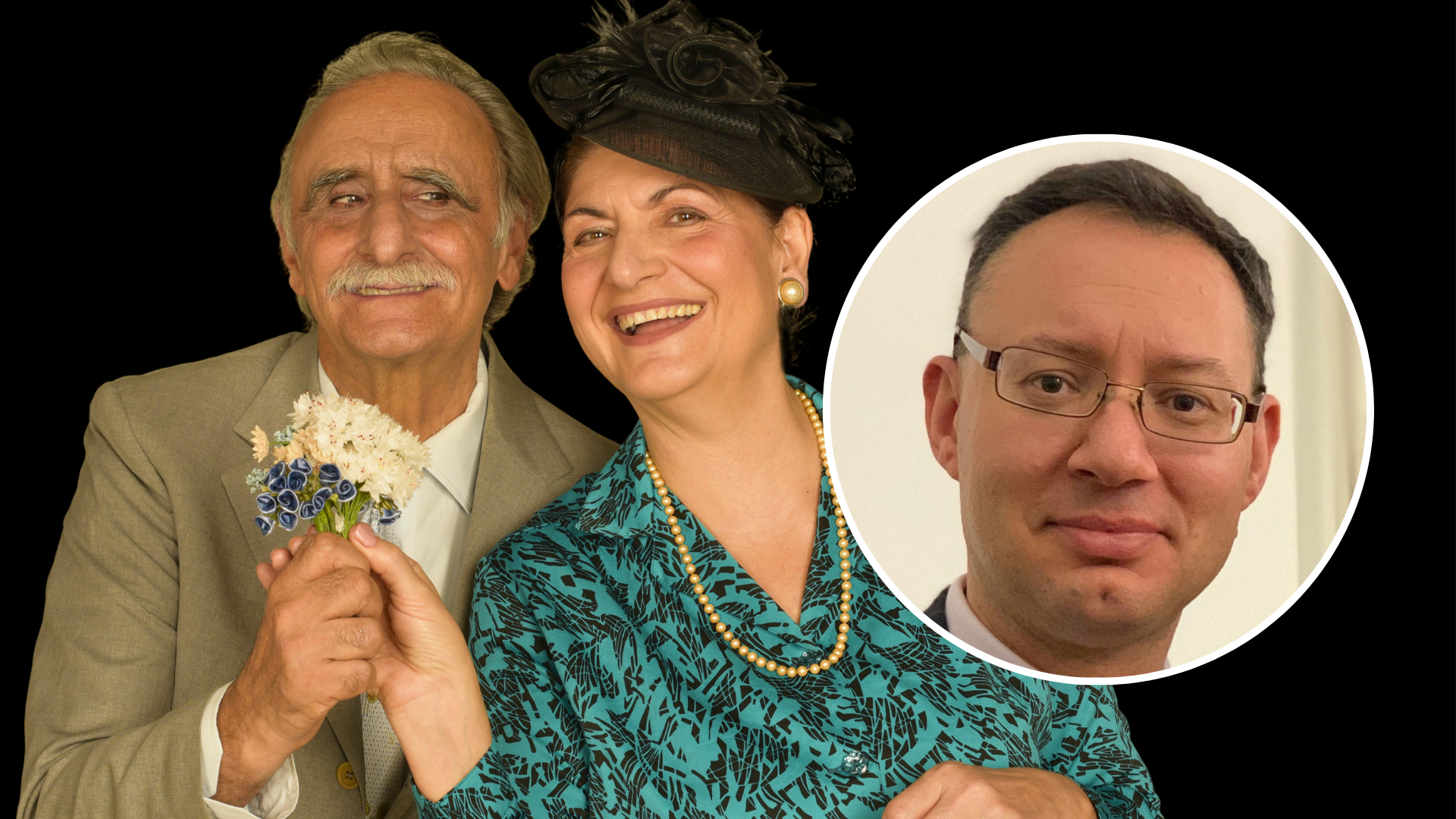After the tremendous success of last year’s performances, the Greek theatre production Opou Gis Kai Patris is set to return for its highly anticipated sequel, Opou Gis Kai Patris 2.
Taking place from March 6 to 9, 2025, at the Greek Theatre – Mantouridion in Sydney, this immersive theatrical experience promises to captivate audiences once again with its poignant storytelling, powerful performances, and vibrant cultural heritage.
Ahead of the Sydney premiere, we spoke with the show’s author Konstantinos Kalymnios who explained what people can expect from the sequel.
What inspired you to create Opou Gis Kai Patris 2, and how does it build upon the story of the first production?
The first play was extremely well received and it toured Greece for an entire year. The feedback received from audiences in Greece was that they would like to know more about the characters featured in the scenes. The directors thus felt that it would be a good idea to commission a sequel, with each segment commencing at the point where each scene from the original left off.
The play explores themes of identity, belonging, and heritage. How do you personally relate to these themes, and how do they shape your storytelling?
I am fascinated by my people. In particular how, even though we were one of the earliest civilisations to develop an ethnic identity, the process of what constitutes the Greek identity still has not been resolved. This is the major fault line running through the diasporic discourse and its interrogation and discourse underlies everything we do as a community.
I am also in awe of the first generation of Greeks who arrived in this country and created our particular world. I am after all a product of their creative process.
The myths our founding fathers have created around themselves and which we perpetuate are a never-ending source of inspiration for me. And yet, in all mythologies, there is always an end-point. The myths inevitably envisage the downfall of the gods and the destruction of their world.
When the directors thus invited me to write the sequel, or using the word which they used: «συνέχεια». I felt this was extremely poignant. The one thing that worries the first generation as it begins to pass into history is exactly that: whether it will have a συνέχεια, however this is defined. Therefore, as a community, we are just as obsessed by our own mortality as the pharaohs of old.
If the first play sought to pay homage to the people who constructed our particular firmament and gently exposed the contradictions between their inherited mythologies and those they created for themselves in Australia, the second play, by presenting them in the twilight of their potency, asks the question: “Will this last?”
Spoiler alert: Winter is definitely coming, but it doesn’t mean that we can’t have a few laughs along the way. Existential angst always lends itself to levity, at least it does for me when I look in the mirror each morning.

What was the writing process like for this sequel? Were there any particular challenges or moments of inspiration that stood out?
The writing of this play was a novel experience because it was co-written with Greek screenwriter and author Vasilis Giavris and theatre doyen Elena Tsefala. Both of these talented writers have had some contact with the diaspora and we thus each possess unique perspectives coloured by our own experiences.
All of us also subconsciously appeal to and address different audiences. It was felt that since the Greek narrative defies stereotypes and geographical boundaries, that we would try something experimental: each of us would write the play in the manner and style personal to us and then, true to the nature of diasporic Hellenism we would adopt a melting pot approach: we would merge our perspectives and see what transpires.
There are of course challenges to this: We decided to have as little communication with each other as possible during the writing process, and given the physical distance between us, Vasilis and Elena living in Greece, the process of bringing the final mixture to the boil, was interesting, to say the least. The beauty of this process is that the play will never be in a final form. It will continue to draw upon its ur-texts and evolve along with its audience… until such time as my killer gag that was mercilessly and quite unjustifiably cut from Act 3 is reinstated that is!
With a mix of Greek and Greek Australian actors, how does the play reflect the experiences of the Greek diaspora, and what message do you hope it conveys to audiences?

The liminal point between myth and reality, the absurdity of the presumption that our existence will continue, unchanged unto the ages and our remarkably ability to render change invisible by pretending that it is not there are the themes that I hope the audience will reflect upon, all the while, appreciating the courage, determination and humanity of the founders of our community.
In this, as you point out, we are privileged to have our words personified by actors from Greece and Australia, of the second and third generations.
Lastly, despite what some of our stuffy and ossified community organisations would have us believe, we are absolutely side-splittingly hilarious, especially when we don’t realise we are being thus, and it is high time that we celebrated ourselves as such.
What can audiences expect from this new chapter? Are there any surprises or emotional moments that you think will particularly resonate with them?
Audiences can expect to laugh and loudly, although canned laughter will be amply supplied to cover the awkward silences where they didn’t get the joke, probably because there wasn’t one. If you don’t laugh, that is probably my gag, rather than the other writers’ gags you are not laughing at, and this will cement an intimate relationship of complicity between us. Trust me, you really don’t want that, so it is much safer to laugh, cry and act in such manner as will display to all and sundry that you got your money’s worth because in our community, appearance is everything.
In the Melbourne performances I will apparently be making a cameo appearance, although I am not quite sure as what, given that my superpower is that I never think things right through. Rest assured though, I have been playing myself for many years now, so I am moderately qualified to do so.
Is there anything else you’d like to say?
I sincerely wish to thank the Greek Festival of Sydney and the Greek Orthodox Community of Melbourne and Victoria for supporting the play and agreeing to produce it in the two major cities of the Greek diaspora in Australia. Both these fine institutions in my view are the key purveyors of Greek culture in Australia, assisting us not only to preserve but to interpret, negotiate and forge new and novel forms of that culture and tradition that is relevant to the communities in which we live and draw our inspiration from, in an open, democratic and accessible way. It is humbling to presume to play but an infinitesimal part in that awe-inspiring undertaking. I also thank the Greek Herald, for its unstinting support and the vital role it plays in this process.
